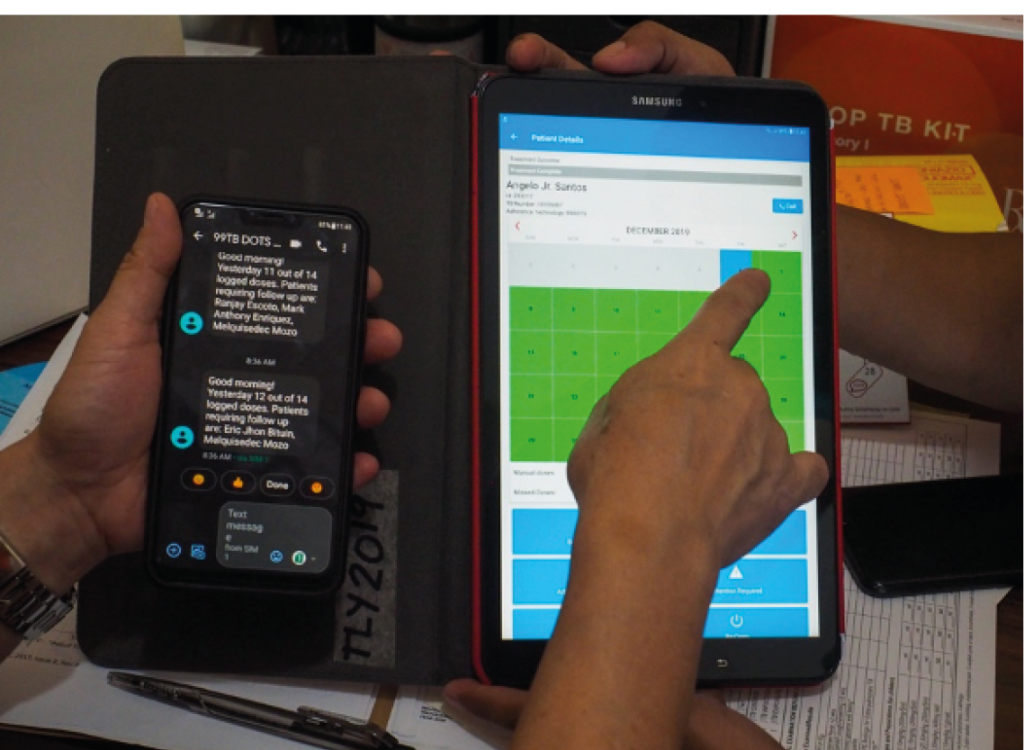The Adherence Support Coalition to End TB, known as the ASCENT project, is proud to announce its new report: The Role of Digital Platforms in Medication Adherence. This report, written by consortium partner PATH, captures the current state of the digital platform market. This includes how digital adherence technology (DAT) platforms are being used and insights into what the future could look like for these products. DATs are used to make sure patients take their medication accordingly and complete their treatment successfully, and a DAT platform is where the adherence data gets saved and shared with the patients’ health care worker (HWC).
Worldwide, directly observed treatment (DOT) is still the standard of care for tuberculosis (TB) treatment. With DOT the health care worker has daily in-person contact with the patient to make sure the medication is taking correctly. The use of DATs enables HWCs to streamline these interactions through a digital platform, which tracks, aggregates, and displays adherence data for each patient. By consulting the platform, the HWC can focus on the adherence of the patients that need their assistance the most.

What’s covered in The Role of Digital Platforms in Medication Adherence report?
While there is a lot of literature and findings that indicate the important role that DAT have in TB patient care, there is a noticeable gap in data and input regarding DAT platforms.
With this report, ASCENT aims to provide insight in the platforms used for DATs, mapping the current advantages and challenges as well as outlining possible future directions for such platforms. The report captures the perspectives of developers, donors, and health care workers. Highlights of the report include:
- showcasing the role of digital platforms in medication adherence;
- evaluating DAT platforms and user experience;
- an overview of platform categories and where and how they are used;
- analyzation of what is and isn’t working well currently;
- and food for thought for the future of DAT platforms.
The Unitaid-funded and supported ASCENT project is led by KNCV Tuberculosis Foundation in partnership with The Aurum Institute, London School of Hygiene & Tropical Medicine, and PATH.

